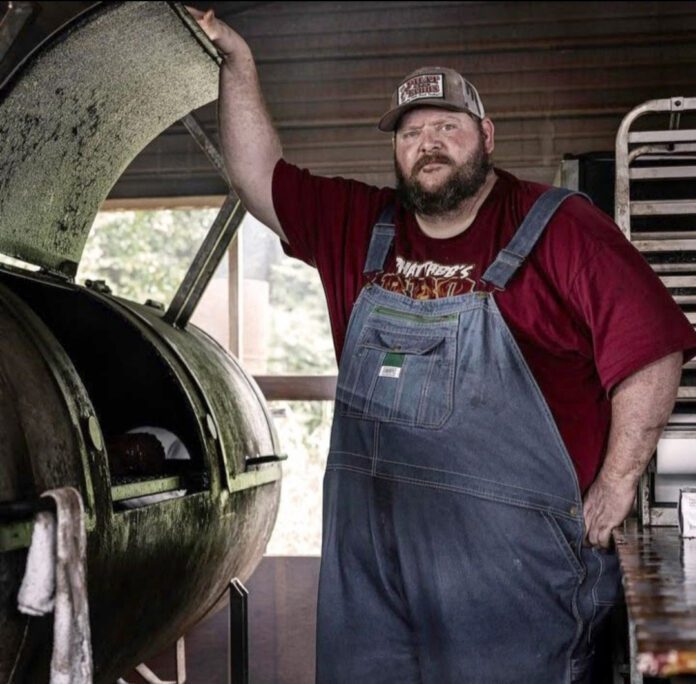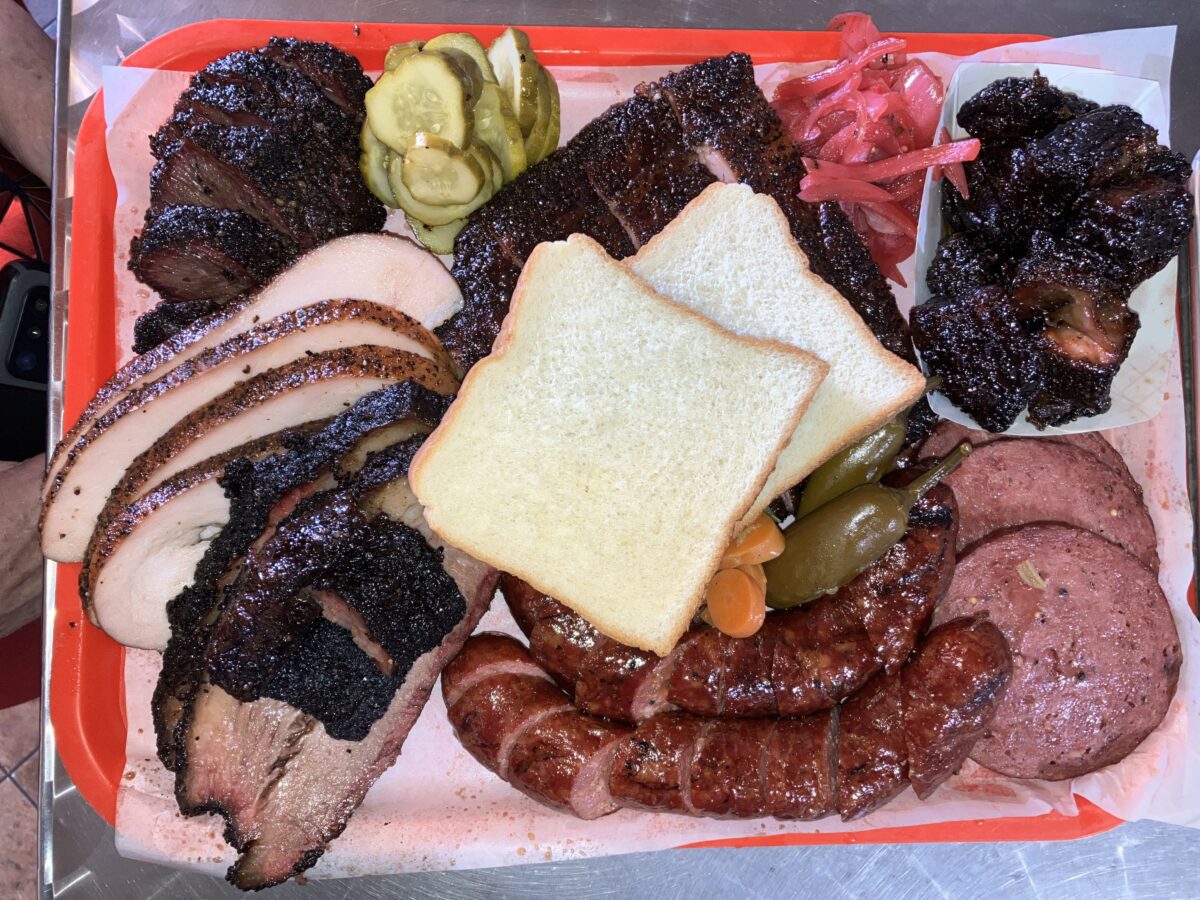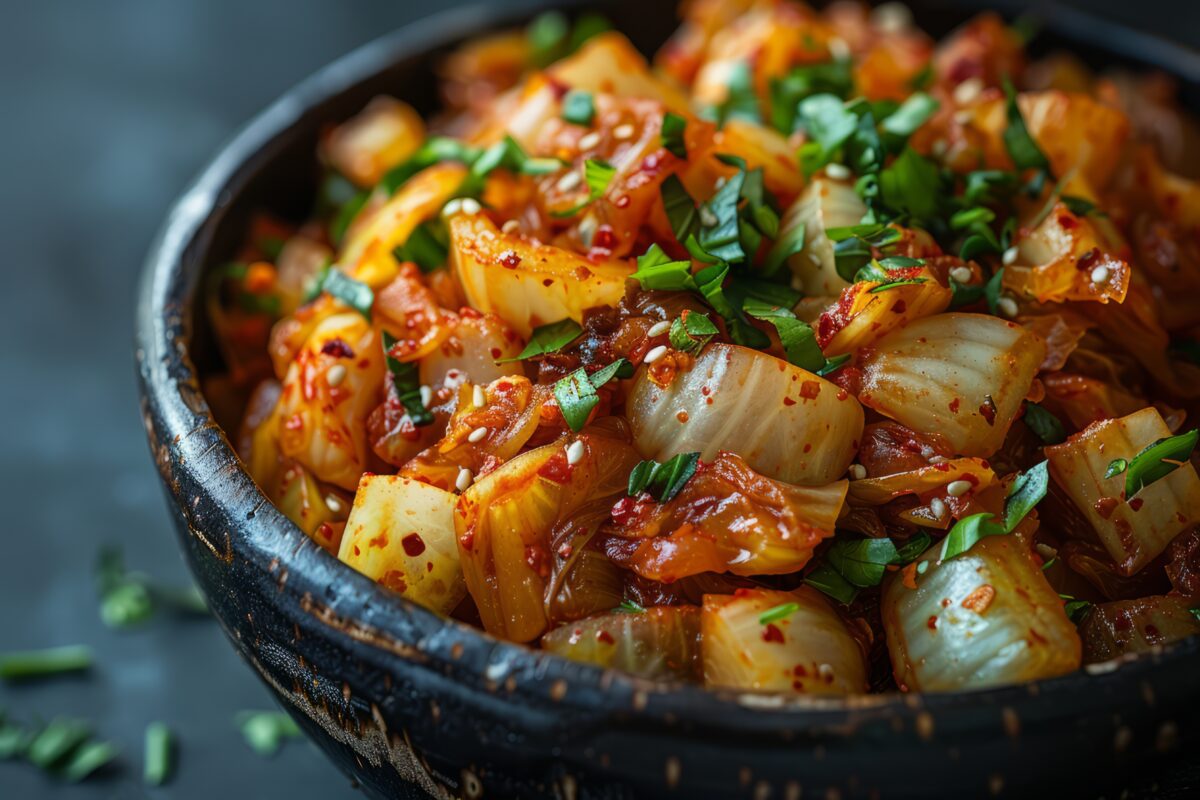
Nestled in the piney woods of southeastern Oklahoma, Idabel is about 100 miles from the Louisiana state line. Dining options include a McDonald’s, several pizza shops … and a tiny barbecue joint run by a 2024 James Beard semifinalist.
Chef Tabb Singleton nearly burst into tears when he heard the news of said nomination – it was the culmination of a long, hard-won career.
It all began when Singleton was in third grade. His dad, who worked at Idabel’s lumber mill, got some scraps and built a smoker.
“I’d watch him at that smoker,” says Singleton, “and that smell got me hooked. Sometimes when I’m smoking meat today, I catch a smell that brings me back to that day.”
Idabel wasn’t kind to kids who wanted a career in the culinary arts. So, after high school, Tabb went into construction. But he still found time to practice the barbecue craft. At one point, he got laid off and a friend told him about OSU’s cooking school in Okmulgee.
“I knew I had a passion for food,” he says, “so I gave it a try. I made the best grades of my life and I loved every minute of it.”
Later, mixed in among jobs in construction and at the lumber mill, was a two year stint cooking at a sports bar.

“My family has always been athletic, and for me cooking is like a sports game. You’ve gotta be on your feet, keep going, and I fell in love with the excitement.”
Singleton’s skills improved and his horizons broadened. He sent resumes everywhere, and soon enough, the chef from one of Emeril Lagasse’s top restaurants, NOLA, phoned. His mom drove him down to New Orleans. The minute he walked into the restaurant, he turned to his mom and said: “I’m gonna move here. This is where I’ll work.” And he did.
“I stayed twelve years and loved every minute,” he says.
He worked 80 hours a week, learned how to butcher meat and cook pastry, and ended up as executive sous chef. Along the way, he competed on the Food Network’s Chopped, cooked calf fries with a coffee-banana cream sauce, and won.
He always thought of going back to his hometown. He wanted to start a restaurant that honored local cuisine and used farm to table ingredients. Once COVID-19 came to New Orleans, he returned. He saw an empty burger shack for sale, took money from his 401(k) and bought it. And so Phat Tabb’s Barbecue started, funded on a shoestring.
But he didn’t want to just sling barbecue; he was determined from the start to serve the best, and rethought every aspect of the barbecue process. Take his brisket, for example. It takes 15 hours to make, and the results are a miracle. But there’s always room for improvement, he says.
“My brisket was great in February, but I’ve changed the process a lot since then,” he says. “I just might change it every six months. Come try my brisket in two years.”

And it’s not just the brisket that’s phenomenal. He makes sausage daily. His beef cheek bologna, ground three times before smoking and then hung to ferment for six hours, is sensational. And so are his sides. There’s always kimchi, alongside New Orleans style red beans. For summer, there’s elote turned into a slaw, and sometimes there’s a Nashville hot turkey sandwich.
Singleton’s cuisine draws inspiration from the whole world. He also looks back in time, inspired by the Southern and Appalachian cooking of yesteryear.
“I’ve been researching the history of Oklahoma, trying to learn about old-time cuts of meat. I’d like to do whole hog barbecue. I’m hoping other pitmasters will copy what I do,” he says. “I love Texas-style, I love North Carolina whole hog, but I’m hoping to make one big melting pot and call it Oklahoma-style barbecue. It will take time, but we’ll get there one day.”






















